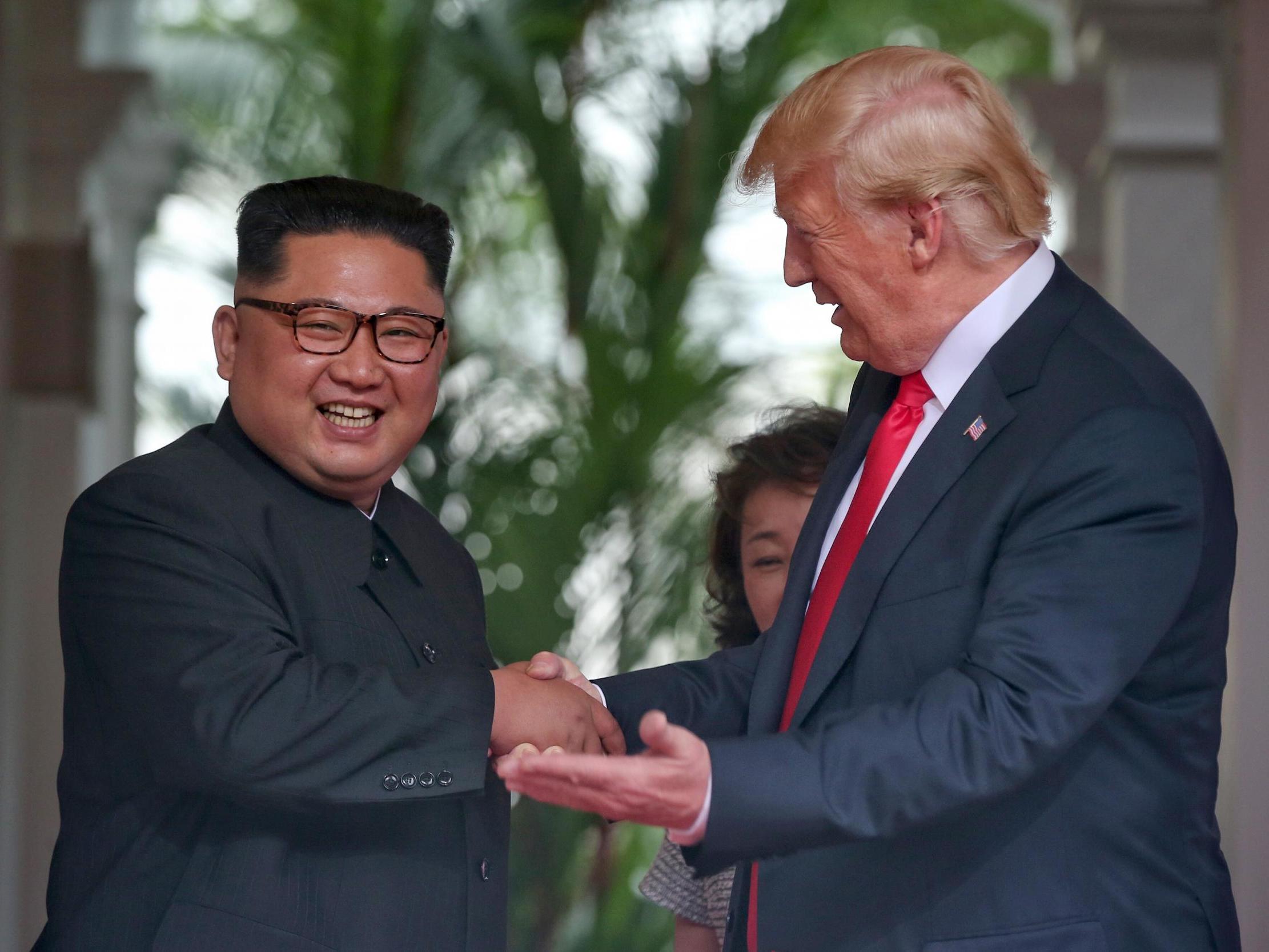North Korea ‘wasted opportunity’ of Trump presidency to end nuclear standoff, says US envoy
‘Much opportunity has been squandered by our North Korean counterparts,’ says US envoy

Your support helps us to tell the story
From reproductive rights to climate change to Big Tech, The Independent is on the ground when the story is developing. Whether it's investigating the financials of Elon Musk's pro-Trump PAC or producing our latest documentary, 'The A Word', which shines a light on the American women fighting for reproductive rights, we know how important it is to parse out the facts from the messaging.
At such a critical moment in US history, we need reporters on the ground. Your donation allows us to keep sending journalists to speak to both sides of the story.
The Independent is trusted by Americans across the entire political spectrum. And unlike many other quality news outlets, we choose not to lock Americans out of our reporting and analysis with paywalls. We believe quality journalism should be available to everyone, paid for by those who can afford it.
Your support makes all the difference.Washington’s top envoy in North Korea has urged Kim Jong Un to continue engaging with the US while saying the leader missed his chance to fundamentally reinvent the relations between the countries during the presidency of Donald Trump.
Deputy US secretary of state Stephen Biegun in a speech on Thursday said he was disappointed that the denuclearisation negotiations had stalled and more progress could not be made after the two leaders met.
"Regrettably, much opportunity has been squandered by our North Korean counterparts over the past two years, who too often have devoted themselves to the search for obstacles to negotiations instead of seizing opportunities for engagement," Mr Biegun said in a speech in Seoul.
However, Mr Biegun praised President Trump's decision to focus on top-level diplomacy with leader Kim Jong Un, and to eschew small steps in favour of seeking a major agreement under which North Korea would surrender its nuclear weapons and the two sides would normalise relations.
"This vision was a bold one, and it made the many advocates of incrementalism uncomfortable," Mr Biegun said.
After trading insults and nuclear threats that had pushed their countries to the brink of war, Mr Trump and Mr Kim met for the first time in Singapore in 2018, where they signed a general declaration calling for denuclearisation and new relations between the two old adversaries.
After working-level talks, Mr Biegun helped lead the two leaders to hold their second meeting in the Vietnamese capital of Hanoi in 2019 but failed to reach a deal.
Subsequent talks failed to make progress and Pyongyang has rebuffed Mr Biegun's calls for more engagement, saying the US does not appear serious about dropping its hostile policies.
Mr Biegun called for North Korea to resume talks in the coming months. He is currently on a four-day trip to Seoul before leaving office next month.
With Democratic president-elect Joe Biden due to replace Trump in January, Mr Biegun said he had a message for the incoming team: "The war is over; the time for conflict has ended, and the time for peace has arrived."
The president-elect however has already said he plans to reset relations with Seoul, which have been strained by Mr Trump’s demand that South Korea pay billions of dollars more for maintaining the US troop presence on the peninsula. The efforts by the US to engage with North Korea also strained the relations between the two countries.
Additional reporting by agencies




Join our commenting forum
Join thought-provoking conversations, follow other Independent readers and see their replies
Comments